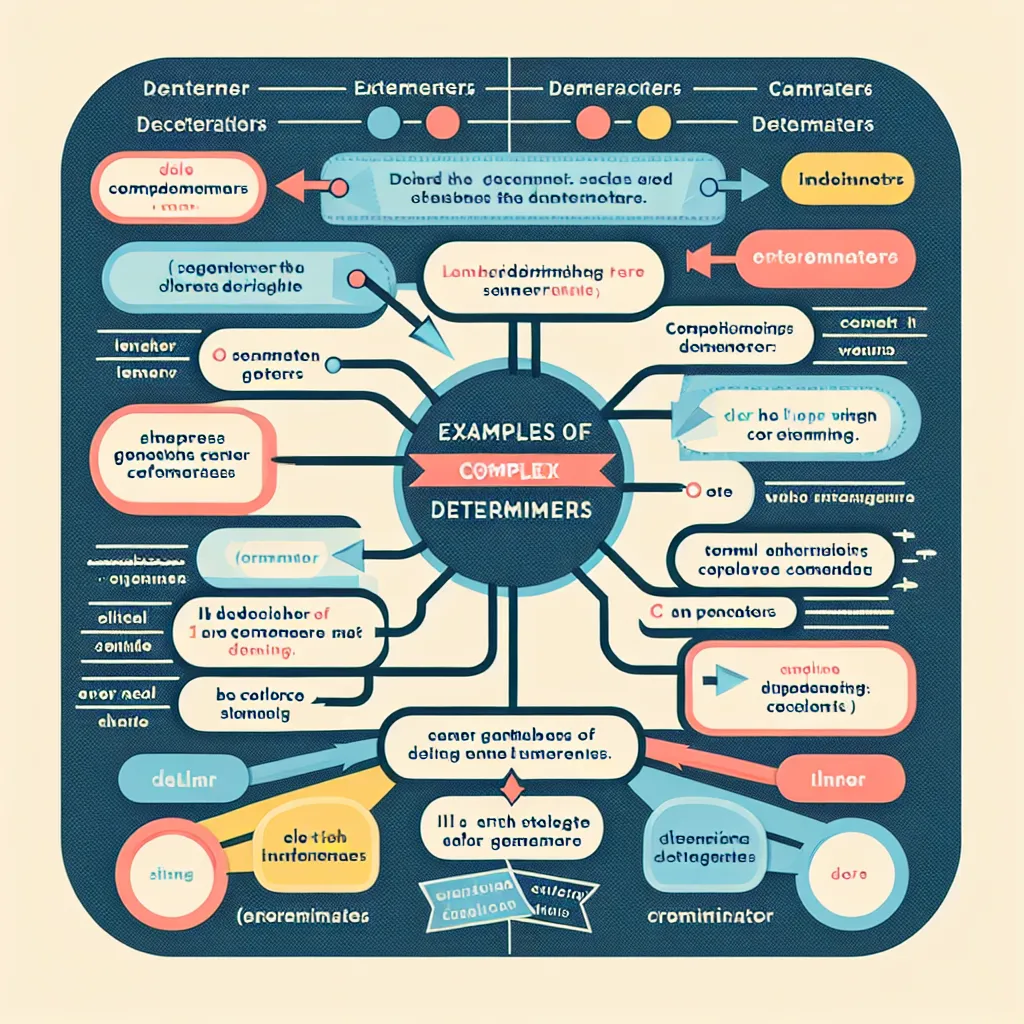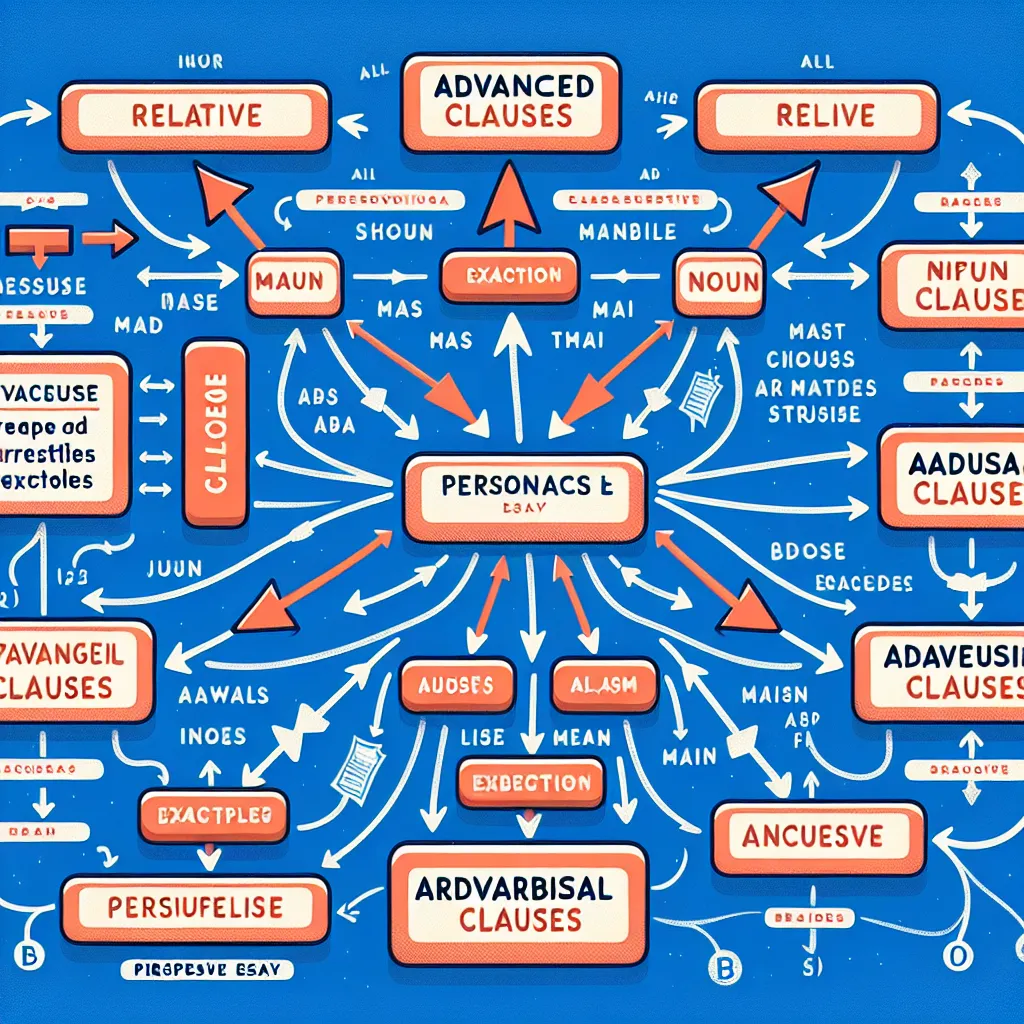Complex determiners play a crucial role in English grammar, helping to specify and quantify nouns with precision. Whether you’re preparing for the IELTS exam or simply looking to enhance your English language skills, mastering the use of complex determiners is essential. This guide will provide you with a thorough understanding of complex determiners and offer practical tips for using them effectively in your English communication.
Understanding Complex Determiners
Complex determiners are words or phrases that modify nouns to provide more specific information about quantity, possession, or definition. They go beyond simple determiners like “the” or “a” to offer more nuanced meaning. Examples of complex determiners include “both of,” “a few of,” “many of,” and “all of the.”
 Complex determiners in English
Complex determiners in English
Why Complex Determiners Matter
Understanding and using complex determiners correctly can significantly improve your English proficiency. They allow for more precise communication, help avoid ambiguity, and demonstrate a higher level of language mastery. For IELTS test-takers, proper use of complex determiners can boost your score in both the writing and speaking sections.
Types of Complex Determiners
Let’s explore the main categories of complex determiners and how to use them:
1. Quantifiers
Quantifiers indicate the amount or number of something. Examples include:
- “Many of”
- “Some of”
- “A few of”
- “Several of”
Usage: “Many of the students passed the exam with flying colors.”
2. Partitives
Partitives refer to a part of a whole. Examples include:
- “A piece of”
- “A slice of”
- “A bunch of”
Usage: “I’d like a slice of that delicious apple pie.”
3. Demonstratives
Demonstratives point out specific items. Complex demonstratives include:
- “This kind of”
- “That type of”
- “These sorts of”
Usage: “This type of behavior is unacceptable in a professional setting.”
4. Possessives
Possessive determiners show ownership. Complex possessives include:
- “A friend of mine”
- “That colleague of yours”
Usage: “A friend of mine recently started learning Japanese.”
Tips for Mastering Complex Determiners
- Study in context: Read authentic English materials to see how complex determiners are used naturally.
- Practice regularly: Incorporate complex determiners into your daily English writing and speaking.
- Use grammar exercises: Complete targeted exercises focusing on complex determiners.
- Listen actively: Pay attention to how native speakers use complex determiners in conversations and media.
- Seek feedback: Ask a teacher or language exchange partner to review your usage of complex determiners.
 Learning complex determiners
Learning complex determiners
Common Mistakes to Avoid
- Overuse: Don’t use complex determiners when simple ones will suffice.
- Agreement errors: Ensure the determiner agrees with the noun in number (singular/plural).
- Mixing forms: Avoid combining incompatible determiners (e.g., “the some books”).
- Incorrect prepositions: Pay attention to the correct preposition following the determiner (e.g., “many of” not “many in”).
Practical Examples and Exercises
Let’s look at some examples and try a few exercises to reinforce your understanding:
- “Both of the candidates have impressive qualifications.”
- “Several of my friends are learning Mandarin.”
- “That kind of attitude won’t get you far in this company.”
Exercise: Fill in the blanks with appropriate complex determiners:
- __ the apples in the basket are ripe. (all of)
- __ my colleagues enjoy team-building activities. (most of)
- I don’t like __ music. (that type of)
For more practice on determiners and articles, check out our guide on how to master English articles.
Advanced Usage of Complex Determiners
As you become more comfortable with basic complex determiners, you can explore more advanced usage:
- Combining determiners: “All of these many books”
- Using with uncountable nouns: “That much information”
- Emphasizing with adverbs: “Nearly all of the participants”
For a deep dive into advanced grammar topics, including complex determiners, visit our article on English grammar rules for advanced learners.
Conclusion
Mastering complex determiners is a significant step towards English language proficiency. By understanding their types, practicing regularly, and avoiding common mistakes, you can enhance your communication skills and express yourself more precisely. Remember, like any aspect of language learning, improvement comes with consistent practice and exposure to authentic language use.
We encourage you to apply what you’ve learned in your daily English practice. For more strategies on mastering English grammar, especially for exams like IELTS, check out our article on strategies for mastering English grammar in exams.
Keep practicing, and don’t hesitate to ask questions or share your experiences in the comments below. Happy learning!




